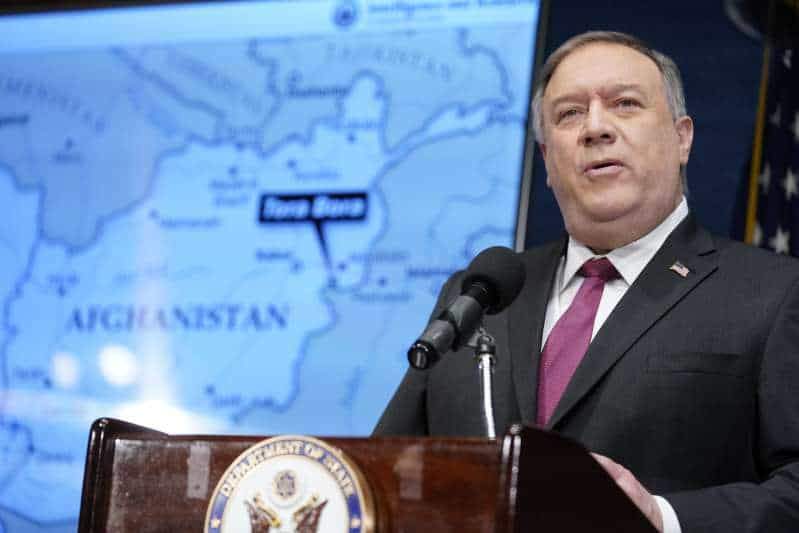China Counters Trump Administration Sanctions, Takes Parting Shots at Mike Pompeo

Foreign ministry spokesperson Hua Chunyin revealed that Beijing would be sanctioning senior government officials, members of Congress, as well as non-governmental representatives as part of the country's countermeasures against the U.S.
Hua did not reveal what the punitive actions would entail or who would be on Beijing's sanctions list, but she said the measures were in response to U.S. "malign behavior" and "meddling" in affairs related to Hong Kong and Taiwan.
Last week, Pompeo announced through the State Department website that six mainland Chinese and Hong Kong officials had been added to the U.S. sanctions list over the mass arrest of more than 50 pro-democracy activists in Hong Kong earlier this month.
The officials are expected to receive travel bans and see any U.S.-based assets frozen.
According to Shanghai-based news site The Paper, Pompeo caused "great dissatisfaction" among the Chinese leadership when he announced a lifting of U.S. communications restrictions with Taiwan this month.
The moves, which voided more than 40 years of protocol, impacted the ease with which officials from Washington and Taipei could meet, especially on U.S. government premises.
Last week, U.S. Ambassador to the U.N. Kelly Craft spoke virtually with Taiwanese President Tsai Ing-wen in another diplomatic step that angered Beijing.
In separate answers at Monday's press briefing, Hua confirmed reciprocal sanctions related to both Hong Kong and Taiwan but did not say whether they were separate lists.
Last month, Beijing announced similar sanctions against U.S. officials and NGO representatives in response to the Trump Administration's travel ban on 14 members of the National People's Congress—China's rubber-stamp legislature.
The punishment, also surrounding U.S. opposition to the sweeping Hong Kong national security law, included the canceling of visa waivers to Hong Kong and Macau for holders of American diplomatic passports.
The latest round of measures was likely meant as a warning to the incoming Biden Administration, analysts said, despite the lack of clarity about who is on the list and in what way they would find themselves restricted.
Pompeo, who will be replaced by incoming Secretary of State-designate Antony Blinken, has been one of China's most vocal critics during his tenure of over two years.
In the final days as State Department head, Pompeo has been tweeting accomplishments from his time in office, including the Trump Administration's reports into human rights violations in Xinjiang and Hong Kong, as well as warming ties with Taiwan.
Numerous tweets also referenced the Chinese Communist Party's threat to information and technology security, and its expansionist ambitions in the South China Sea.
Hua called the string of Twitter posts Pompeo's "last-day madness" and described his tenure as being defined by "meddling in China's domestic affairs" and "undermining U.S.-China relations."
Pompeo has continued to push the controversial theory that COVID-19 began in a laboratory in Wuhan, citing new evidence on Friday.
This has led China to propagate its own conspiracy theories about the virus's alternate origins in Europe and the United States, while Chinese state media outlets have repeatedly cast doubt on the safety of the Pfizer vaccine.
On Monday, the WHO's independent pandemic review panel was critical of China and the United Nations health body, concluding in a report that swifter action could have been taken to stop the spread of the disease in January.
Hua said the report showed the need for China and many others to do better.
Photo: © ANDREW HARNIK/AFP via Getty Images File photo: Secretary of State Mike Pompeo.
Link: https://www.msn.com/en-us/news/world/china-counters-trump-administration-sanctions-takes-parting-shots-at-mike-pompeo/ar-BB1cTife











